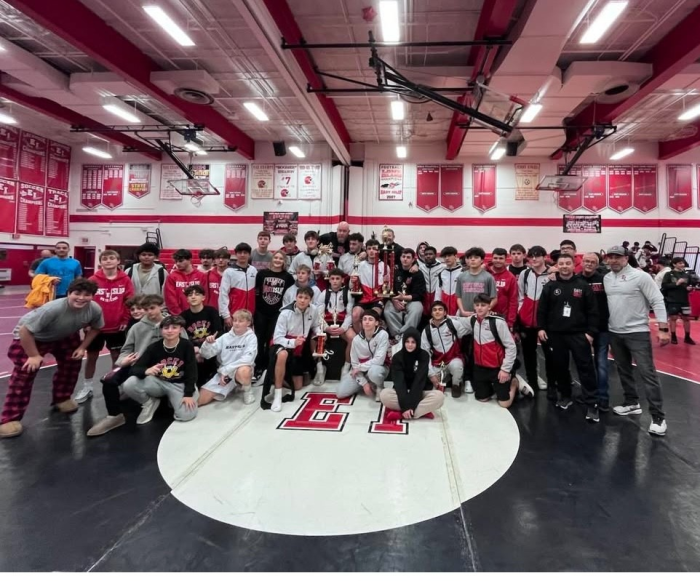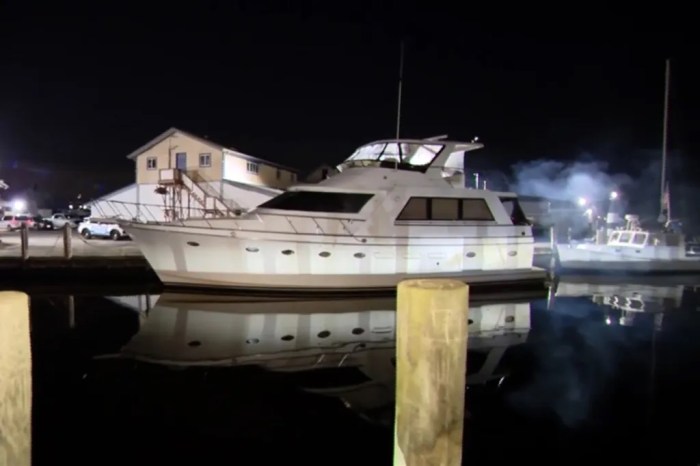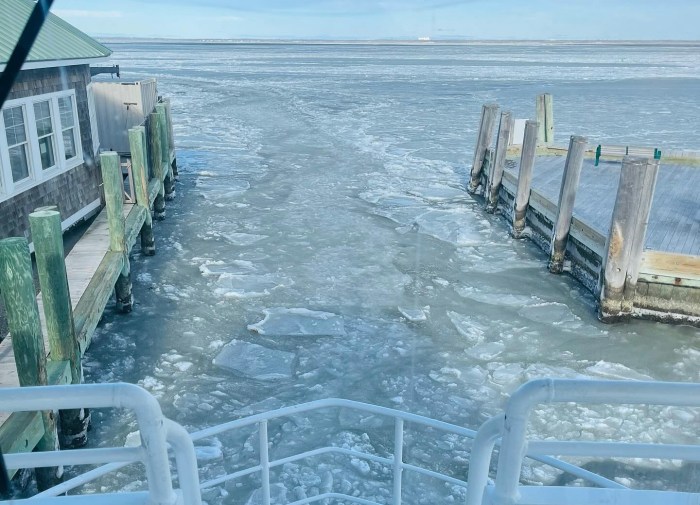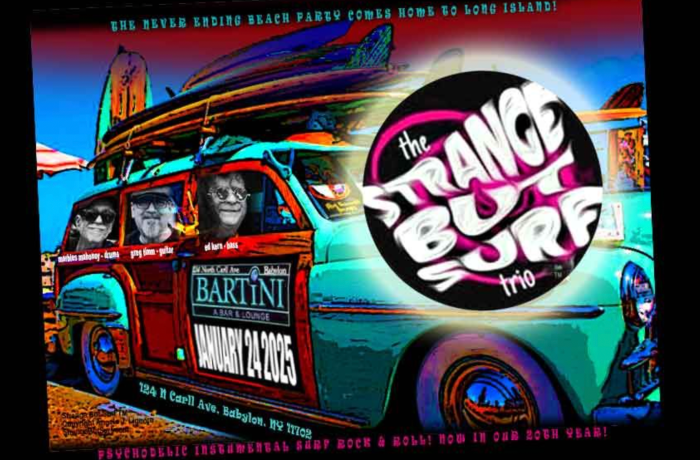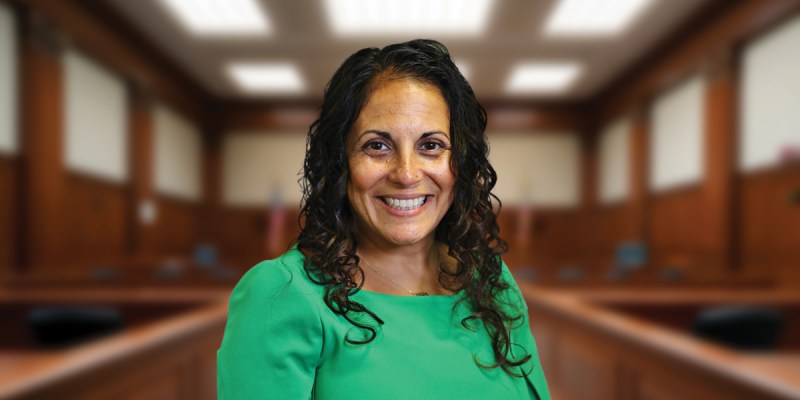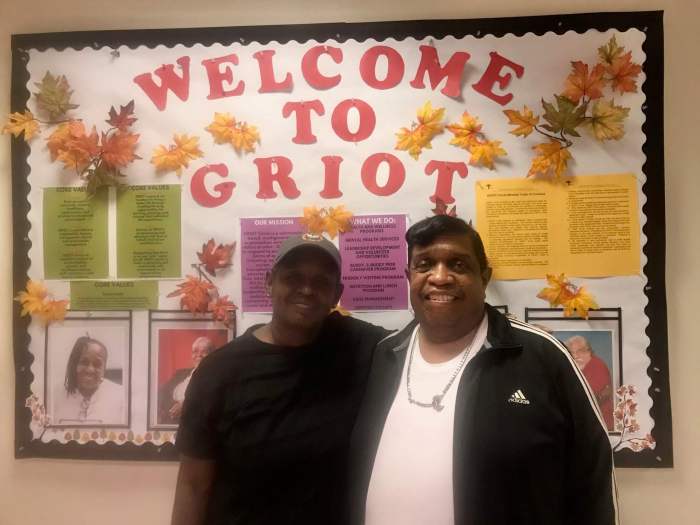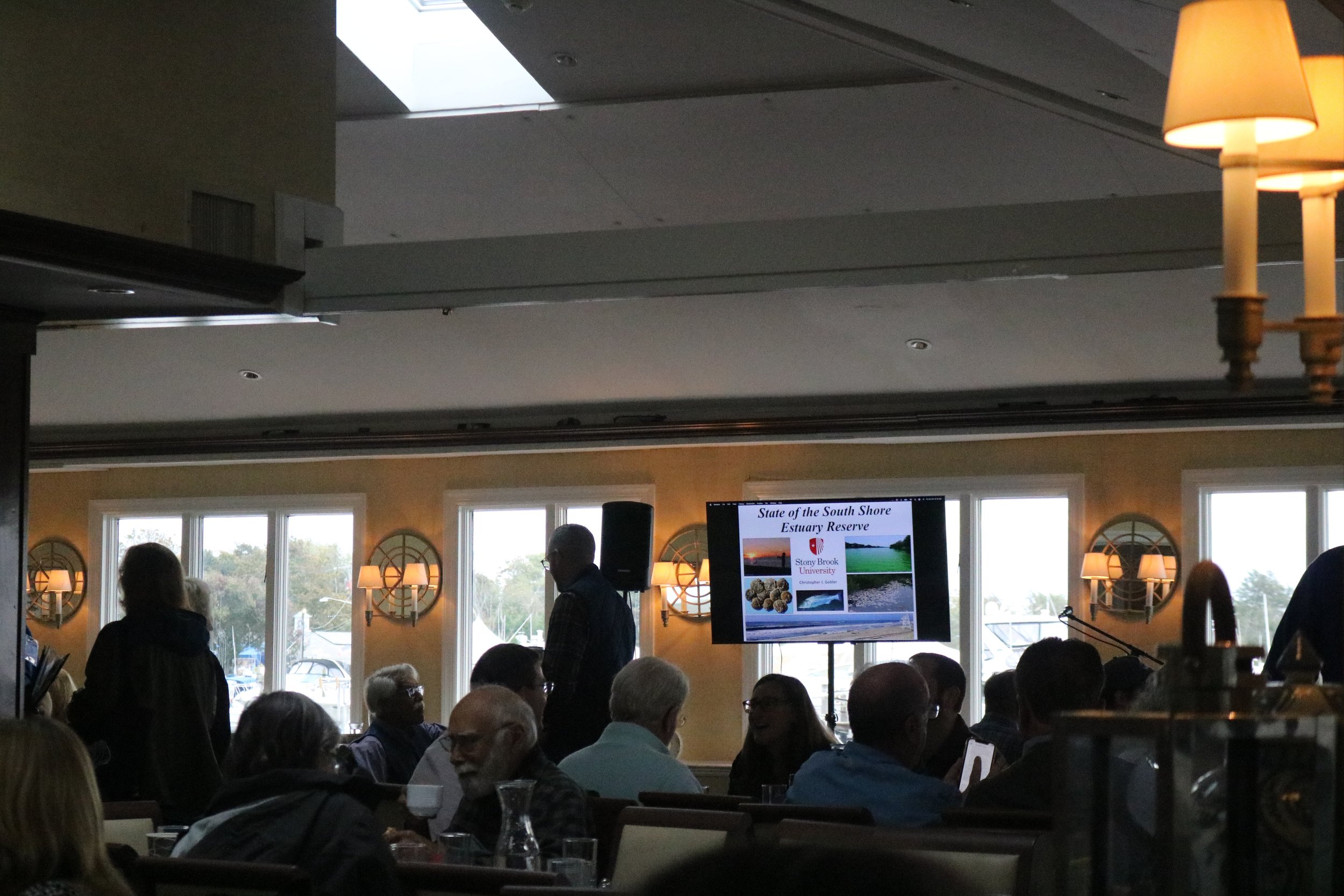
An animated audience enjoy breakfast at The View in Oakdale prior to Dr. Gobler’s address on behalf of Save the Great South Bay.
Biologists, fishermen, and Long Islanders who care about the Island they call home gathered at the View, in Oakdale on Friday morning, October 20 to enjoy breakfast, coffee, and an exchange of ideas as they were eager to hear about the health of the local waters. Save the Great South Bay this speaker series, headlined by Dr. Christopher Gobler.
With excitement, the organization wasted no time announcing its new plan of a unified water study. It is the result of a combined effort by Save the Great South Bay and the South Shore Estuary Reserve program, funded by the United States Geological Survey.
This study is intended to implement a standardized data collection for all water quality stations and collection sites, that range from Hempstead Bay to Shinnecock. Robyn Silvestri, Executive Director of Save the Great South Bay explained that this unified and partnered system, “will allow for the creation of a water quality letter grade.”
The idea was conceived three years ago by Silvestri with other members of the organization. However, funding was needed. Thanks to a combination of private donations, as well as funding from South Shore of Long Island towns and county offices, this new study is now ready to launch.
“It will allow for the creation of a water quality report card, that will allow us to really say how the bay is doing, in a way that the regular person will understand on a day-to-day basis,” Silvestri said.
Save the Great South Bay is a non-profit organization dedicated to doing exactly what its name says. The movement to save the bay began in August of 2012, to restore the waterway around Long Island and preserve it for future generations of Long Islanders. Silvestri, and President Todd Shaw, are just a few of the numerous dedicated and hard-working people in the organization who enable the group to do what they do.
Since its creation, Save the Great South Bay has established numerous programs that have greatly helped its mission. Headlining those programs are the Creek Defender Program and the Great South Bay Oyster Project. Throughout the numerous towns on the South Shore of Long Island, there are around 50 creeks that funnel into the bay. According to Shaw, these creeks are the “arteries,” of the Great South Bay. In order for the bay to be healthy, those creeks need to be clean and healthy. Led by Tom Kain, the Director of the Defend the Creek Program, the organization rallies residents and environmental groups for trash pick-up events to those creeks pristine. The Great South Bay Oyster Project plants and grows oysters within the South Shore Estuary. Partnered with several of local Yacht clubs, Save the Great South Bay 85,000 more oysters were planted just last week alone.
The most serious issue with the bay however is the rising levels of nitrogen in the water.
“Suffolk County public water is in the top five percent of nitrate levels in the United States,” said Dr. Christopher Gobler, a Professor with the School of Marine and Atmospheric Sciences at Stony Brook University. He further explained that the nitrate is coming from wastewater, and Suffolk County is a high-waste area.
The planting of oysters and mussels is a natural filtration defense against this, and other harmful toxins in the water.
The organization is also coming up with other methods to continue its mission of keeping the Great South Bay healthy and vital.
The team is currently exploring the possibility of setting up a Nitrogen-Removing Biofilters (NRB) system that would remove anywhere from 50% to 100%, of nitrogen and other harmful materials that find their way to the water.
Dr. Gobler also discussed the farming of sugar kelp. This cold-water kelp also helps remove nitrogen, and raise the pH levels of water. Studies further show that oysters grow faster when in the vicinity of near this kelp, which Dr. Gobler explained as a “halo effect,” around shellfish, which are crucial to the marine ecological system in the bay.
Now in its 12th year, Save the Great South Bay’s mission remains ongoing. Supporting the cause with donations and volunteer work is vital to their breakthroughs and success. Learn more by visiting their website, savethegreatsoutbay.org. Lectures in their Speaker Event series are also free of charge and you will come away more knowledgeable about Great South Bay and our Long Island home.



